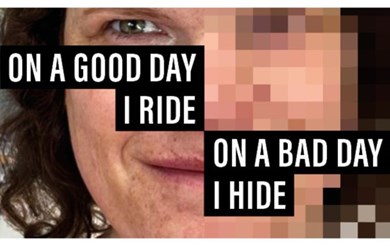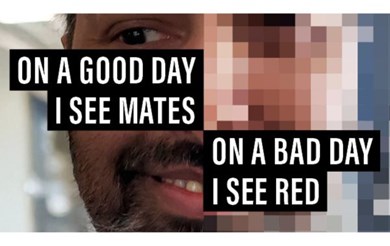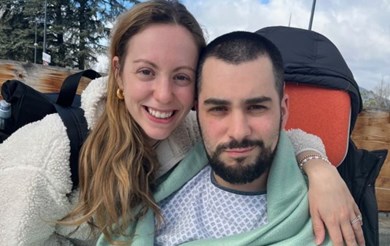
This year’s theme, On a good day, explores the fluctuating and unpredictable nature of brain injury.
The campaign, which runs from 19-25th May, puts a spotlight on how symptoms- such as fatigue, headaches, mood changes and cognitive problems- can impact a brain injury survivor’s ability to work, their hobbies and activities, and their relationships.
Throughout ABI Week, Headway will share real-life stories from brain injury survivors, talking candidly about living with a brain injury, exploring how some moments feel easier while others bring often debilitating challenges.
Survivors like Raj Gataora, Katie Stratton and Lorna Collins.
Raj's story
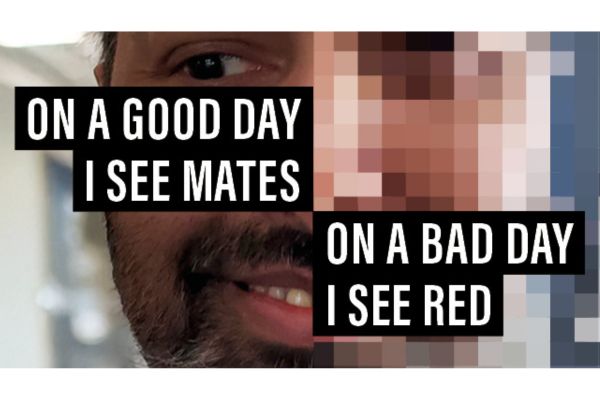
Raj Gataora, from Nottingham, was driving home from work in 2005 during terrible weather conditions when a deer ran in front of his car, causing him to swerve and crash.
Doctors initially thought Raj, then aged 21, wouldn’t eat, drink or even breathe by himself, but he set out to “prove everyone wrong” and even went back to education, graduating from Nottingham Trent University with a degree in Criminology.
A good day to Raj, now 41, includes meeting up with peers at Headway Nottingham, where he has been attending for several years, as well as enjoying activities like rock climbing or going to the gym.
He said: “A good day for me looks like having a laugh with people who have been through what I have been through, and we all share stories with one another.
“I have become very confident since coming to Headway Nottingham. I just feel comfortable when I’m here.”
A bad day can see Raj become overwhelmed and withdrawn.
He said: “On a bad day, when I’m around loads of people it can feel rather claustrophobic.
“I don’t like loads of information blurted out, it becomes overwhelming for me, and I become withdrawn.”
Katie's story
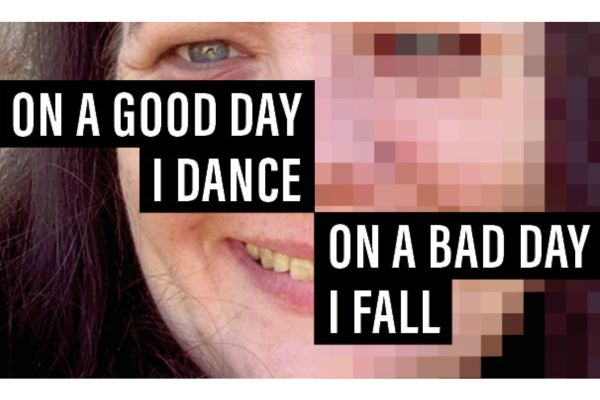
Katie Stratton, from Bedford, was a happy, healthy mum-of-two when she was diagnosed with a benign Meningiomas brain tumour in 2019, aged 29.
Doctors operated within a matter of weeks to remove it, but Katie still lives with symptoms.
Katie, now 35, said: “On a good day I can go to the shop and dance around the house- I love my dancing!
“I have a lot more energy on a good day. I feel more able to do things- like different activities with the kids, meet my friends, go for a coffee or to different groups.
“On a bad day I tend to stay in my bedroom more and try to sleep.
“Anyone would look at me and think ‘yeah you look fine’, but they don’t see the days I’m in bed or when I’ve got a crushing headache.
“I’ve been going to Headway Bedford for two years now, and they've helped me realise that there are different ways to work around the struggles I face.”
Lorna's story
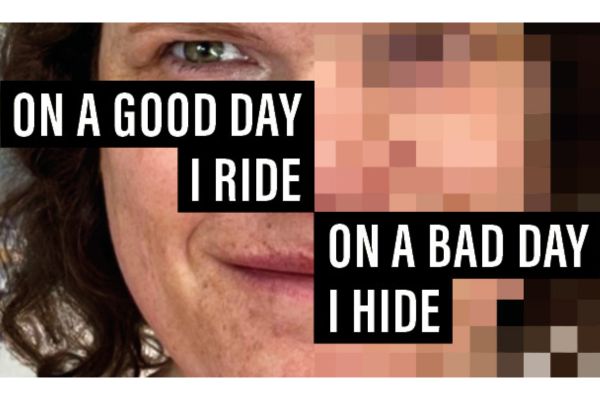
Lorna Collins, from Buckinghamshire, was ‘destined for glory’ in the equestrian world when a fall from her horse at age 18 saw her dream of becoming the first woman to win the Grand National come to an abrupt halt.
Lorna, now 43, landed on her head when her horse tripped over during a training session in the year 2000. She sustained a traumatic brain injury (TBI) and developed several psychiatric illnesses post-injury.
“On a good day I’m really organised and have a busy schedule”, she said.
“I might express myself through words or paint a picture. I’ll have a lovely time with my animals; I might go for a run with Wilby, my Whippet, or ride my horse.”
A ‘bad day’ can see Lorna battle dizziness, fatigue and feelings of anxiousness.
“My head is cloudy because I can’t think straight,” she said.
“I get very anxious and disorientated with my identity and not remembering my childhood.”
Inspiringly, Lorna “doesn’t regret” her TBI and said it has led to “finding value out of difficult times”.
She added: “Sharing my story with campaigns like Headway’s On a good day is utterly crucial and a great privilege.
“If we can educate people to be more compassionate, sympathetic and sensitive then that can only be a positive thing for everyone - not only for people with brain injuries but also the general public.”
'Good day' vs 'bad day'
Raj, Katie and Lorna aren’t alone in struggling with fatigue, memory and concentration issues and dealing with anxiety, as these were the most common fluctuating effects of brain injury reported in Headway’s research for ABI Week 2025.
Earlier this year, the charity launched two surveys; one for individuals with a brain injury and one for carers to share how their day-to-day experiences shift.
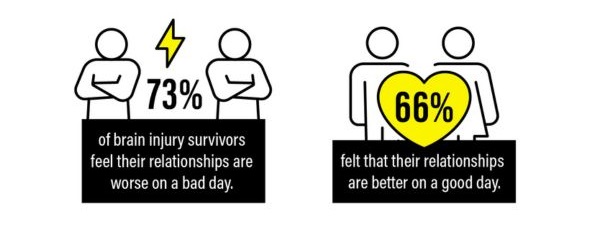
Results from the surveys flagged that 80% of survivors and 84% of carers feel low in mood on a survivor’s bad day; conversely, 80% of survivors and 91% of carers feel good on a survivor’s good day.
Other key results showed that:
- 64% of survivors and 53% of carers lose their tempers more easily on a survivor’s bad day.
- 86% of survivors and 78% of carers find working or studying difficult on a survivor’s bad day. Conversely, 62% of survivors and 78% of carers find work or studying easier on a survivor’s good day.
- Half of carers felt that their relationship with the survivor and others are negatively affected on a survivor’s bad day. Conversely, 85% felt that their relationship was good on a survivor’s good day.
Read the full results of our On a good day survey.
Colin Morris, Director of Communications at Headway, said: "This year’s campaign is all about seeing both sides of brain injury.
“On a good day highlights the need for more understanding, respect and positive change towards those who might be having an all-too-common bad day.
“It might appear ‘easier’ to support survivors on their good days, but when they experience fatigue, headaches and other debilitating symptoms, these are the moments when people’s support can mean everything.”






